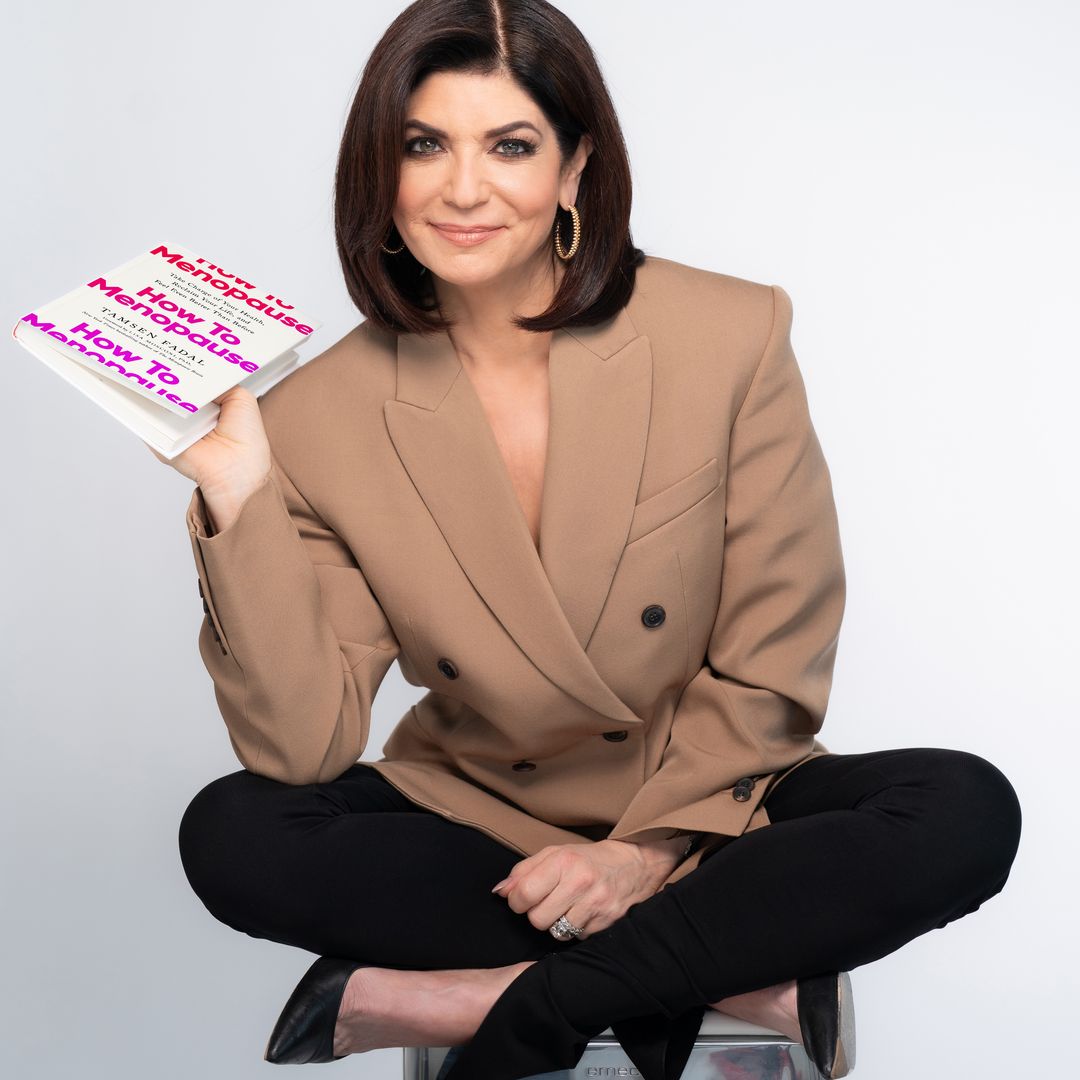As another new year rolls in, many of us feel the pressure to set ambitious resolutions. But if you're in the midst of perimenopause, a time when everything can feel overwhelming and out of control, you may find yourself feeling stressed and anxious about setting intentions for the new year rather than inspired.
You might be juggling a demanding career, have caregiving responsibilities for children and aging parents, and then there’s a social life to maintain. Combine all of these with perimenopausal symptoms such as fatigue, anxiety, or brain fog, and it's easy to see how self-care falls to the bottom of the list.
Psychiatrist Dr. Allie Sharma and co-founder of Being Health, says that instead of striving for sweeping changes this new year, consider taking a step back to focus on what matters. All you need to do is ask yourself a set of questions to help you evaluate your daily life and identify where you might be neglecting your mental, emotional, or physical needs.
"A lot of mental health is making sure that you're taking care of yourself so that you can take care of others," explains Dr. Sharma. "I know that sounds simple, but it is so important. When I sit with my patients, I ask them about their day and their routine and ask where have they built in self-care. Have they made time for taking care of themselves?"
Dr. Sharma adds that we must think of the new year as a reality check - an opportunity to pause, reflect, and realign our priorities. The goal isn't to add more tasks to your to-do list but to ensure you're carving out space for the things that truly recharge and nurture you.
"Perimenopause happens during a time when our workload is higher, our responsibility is higher, which can also increase anxiety. So the first thing to understand is this period makes you more vulnerable to anxiety," explains Dr. Sharma. "You have to find out what works for you, because what works for one may not work for the other.
"During perimenopause, we don't feel like ourselves and that is disconcerting,” notes Dr Sharma. "But prioritizing yourself helps you feel better again. Taking time to care for your own needs equips you to show up fully for others and navigate the challenges of perimenopause with greater resilience."
1. Reflect on your current routine
Dr. Sharma advises to start by mapping out your typical day. "Write down everything you do, from the moment you wake up to when you go to bed. Include work tasks, caregiving responsibilities, errands, and any leisure activities (if they exist!) Then, Dr Sharma says to ask yourself:
- How much of my day is spent on things that energize or fulfill me?
- Where am I overextending myself?
- Am I making time for rest, connection, and joy?
ADVICE: This simple hack helps me manage midlife overwhelm
2. Identify what's missing
Next. Dr, Sharma advises looking for gaps in your routine. Are you skipping meals because you're too busy? Has it been months since you've caught up with friends? Are you neglecting physical activity or creative outlets? Do you ever even have the opportunity to sit and do nothing?
"This step is about pinpointing areas where your needs aren't being met,” explains Dr. Sharma. "How often are you in a state of complete calm where you're doing nothing, where you have no responsibility? Most people, get up, start their day tasking until the middle of the night, leaving no time or no permission given to oneself to do nothing. This is not good for your mental health.
INSPIRATION: At 45 I've finally got the life I’ve always aspired to lead
"Take five minutes in the morning or evening, light a candle, write down your thoughts, write down everything stressful, then write down the things you're grateful for and want to do for YOU," advises Dr Sharma.
3. Set priorities for change
"If you haven't seen friends in months, schedule a coffee date. If you're struggling with stress, try a 10-minute mindfulness exercise each morning. These small, manageable shifts can add up to significant improvements over time," Dr. Sharma notes.
Remember, the new year doesn't need to feel like a mountain to climb. By focusing on small, meaningful changes, you're investing in a future where you feel more aligned, resilient, and ready to thrive - no matter what perimenopause throws your way.














